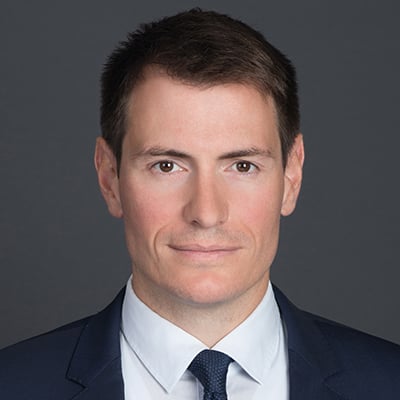How Kirkland Has 'Reinvented a Meaningful Aspect' of Funds Work
In this article for The American Lawyer, partner James Desjardins discusses how SideTrack, Kirkland’s lawyer-built tech platform, has transformed its investment fund practice.
Kirkland & Ellis has one of the largest investment fund practices in Big Law—and lately, it’s been leaning on a homegrown tool to power even more growth in the practice.
SideTrack, Kirkland’s lawyer-built tech platform for helping to manage the fundraising process, has now been used for several hundred client matters across the globe, the firm said. And its creator says it’s “fundamentally reinvented” aspects of how the firm’s investment funds group does its work, just in the last couple of years. It was developed and piloted during earlier parts of the pandemic and launched at the firm in 2023.
The Kirkland tool is notable because of its impact on the firm's investment fund practice and because funds work has been particularly profitable lately within the legal industry, with analysts saying some firms that lean toward private equity and fund formation right now are growing demand at twice the rate of the rest of the market.
James Desjardins, a corporate partner who led the development of the tool, said practically every significant fundraiser his firm has done in the last year or two has used SideTrack, amounting to roughly 700 matters for something like 375 different clients across the firm’s international funds group.
“The Kirkland investment funds group is the size of many Am Law firms in its own right, and we’ve fundamentally reinvented a meaningful aspect of the work the group does,” Desjardins said. “So the benefits of that have far outstripped the value I could create by simply billing my time.”
SideTrack is a platform that helps fund formation attorneys and clients manage side provisions associated with different investors. These days, it’s not uncommon for there to be hundreds of requests, or side letters, for different provisions applying to specific investors. The Kirkland application can quickly pinpoint which ones are duplicative, eliminating the need for lawyers to go through dozens or hundreds of documents and thousands of provisions individually. It also helps streamline the so-called most-favored-nation process, where some investors can pick from a menu of the existing provisions to get the best deal possible.
It was publicly disclosed for the first time to Legaltech News in October 2023. And Desjardins said in a recent interview that it's been a differentiator for Kirkland.
Even as firms plan to double down on innovation, managing this aspect of the fundraising process is still an issue across the rest of the industry, he said. “It goes a long way to tell our clients, ‘Look, this notoriously burdensome process—this is a solved problem at Kirkland and not something you need to worry about.’”
Another opportunity for SideTrack relates to helping clients manage all the provisions they’ve agreed to across several funds. “By having all this information, not just for one fund but all their funds, it allows us to much better support our clients when they have a question, say, two years later. ‘What did we agree to with this investor?’” Desjardins said.
He added that the tool can help with recruitment and retention at Kirkland. “If you have your associates coming out of law school and copy/pasting thousands of lines in Word documents and blacklining hundreds of paragraphs against each other, you’re just burning through people,” he said. “Now you’re having them take on substantive work and helping them progress through their careers.”
Innovation without AI
Though generative AI is arguably the biggest focus for firms on the tech front, SideTrack isn’t based around AI. Desjardins said whether he could’ve used AI to improve SideTrack was a “natural question,” given where the tech hype cycle is right now. But he said he doesn’t really think so.
“There was already a significant backlog in the legal industry of opportunities to leverage then-existing technology to do things more efficiently. There was a whole universe of problems waiting to be solved with the technology that already existed. The rise of AI has expanded that universe,” he said, adding: “But it doesn’t change the fact that a lot of those prior problems still need a solution and can, and maybe should, still be solved using that older conventional technology.”
Desjardins was a software engineer before becoming a corporate attorney and ultimately a legal technologist focused on innovation at Cravath, Swain & Moore, before joining Kirkland.
Last year, Desjardins said that, while SideTrack was still only available to Kirkland lawyers, he would “see what the future brings” in that regard. But he said in a more recent interview that, at this point, it still makes sense to keep it in-house.
“Given it is still an unsolved problem for the rest of the market, it means there is still a market opportunity,” he said. “The balance between those things may shift over time, depending on a lot of different factors. So we’re keeping an eye on that dynamic.”

